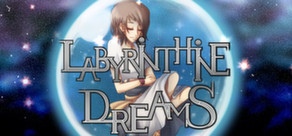
A Matter of Life and Death (2006)
This album made it overwhelmingly clear that the "post-reunion" Iron Maiden no longer resembled the 1980s incarnation of the band. It was closer to the late 90s era, but it was not quite that either. With the exception of the first track, A Matter of Life and Death has a consistently grim atmosphere and the experience is a little similar to listening to The X Factor (which is ironic, because the next album is kind of like Virtual XI). Filled with songs about war, death and hypocrisy, this album is said to draw on the band's memories of growing up during the Cold War in addition to anxiety about the sorry state of the world in 2006. Nice to know it would get so much better, right?
Critics loved this album, but the fandom reaction was not quite as enthusiastic. The band had left behind most of their interest in catchy riffs, opting instead to further embrace the progressive elements they had been exploring for a while now. The result is a very dense album that is impossible to fully appreciate with one listen. It takes quite a while to appreciate the nuances in each of these massive tracks, particularly a trio of songs I call "the three epics." Huge and powerful, these songs are the highlight of the album and are so overwhelming that there is a big risk of overshadowing the rest of the tracks. Fans will find much to admire on this album as long as they can accept that the 80s are long gone.
 "Different World" is a fun song that really has no business being on this particular album. It's nimble guitar and impassioned vocals have made it a fan favorite, but the upbeat tone sticks out like a sore thumb if you've heard the rest of the album. I don't know if Iron Maiden's ever made it more obvious which song is meant to be a single...though to be fair, the other single on this album is a downright weird choice. I don't want to be too hard on this song, as I do find it pleasant enough to listen to...but I can't help but feel a message of "everybody has a different way to view the world" is kind of pedestrian by Iron Maiden's standards.
"Different World" is a fun song that really has no business being on this particular album. It's nimble guitar and impassioned vocals have made it a fan favorite, but the upbeat tone sticks out like a sore thumb if you've heard the rest of the album. I don't know if Iron Maiden's ever made it more obvious which song is meant to be a single...though to be fair, the other single on this album is a downright weird choice. I don't want to be too hard on this song, as I do find it pleasant enough to listen to...but I can't help but feel a message of "everybody has a different way to view the world" is kind of pedestrian by Iron Maiden's standards."These Colors Don't Run" is the real thematic beginning of this album. The song explores the reasons why people sign up to fight in wars. Why subject yourself to such incredible risk? Many potential reasons are mentioned, but the chorus suggests that the dominant one is pride. This is a driving song with an especially affecting middle section. Incidentally, "these colors don't run" is also what Bruce shouted while brandishing a British flag at Ozzfest 2005, when a public feud between him and the Osbournes led to the band being pelted with eggs during one of their performances. Actually, he said "these colors do not fucking run from you asswipes," but for some reason the band opted not to make that the song's official title.
"Brighter Than A Thousand Suns" is the first of the three epics. This is a brilliant, absolutely towering statement against nuclear weapons that employs various time signatures that I'm not sure I can fully explain without a music degree. The lyrics are filled with powerful imagery as man's capacity to destroy is pitted against God's capacity to create. "Take at look at your last sky," the song tells an unfortunate civilian, "chances are you won't have the time to cry." Did I mention that there are also references to Dr. Strangelove, J. Robert Oppenheimer, and the theory of relativity? Yeah, it's that kind of song. Bruce's shrieks ring with righteous indignation and the instrumental work is nothing short of superb. For a band often pitted against religion, this song has a very spiritual message in the end - nuclear weapons are a crime against God.
"The Pilgrim" is a classic Janick Gers track, short and sweet. Extending the album's themes back a few hundred years, the song explores the motivations of "knight templar" types. Will violent service in the name of God cleanse a person's past transgressions and ensure them a seat in Heaven? These warriors thought so. What always impresses me about this track is the vocals. They are consistently high through most of this song, and it's pretty impressive that Bruce can still pull off a track like this when I can end up winded after singing along in the car.
The Allied invasion of Normandy is even more iconic for World War II than the Battle of Paschendale is for World War I, so I had high hopes for "The Longest Day." Unfortunately, this song is weaker than you would expect an Iron Maiden treatment of June 6, 1944 to be. The first two minutes or so are promising, but over the course of the lengthy song, the band relies way too much on repeating the phrase "How long, on this longest day, till we finally make it through?" It's a powerful line the first time, not so much after nine or ten times. "The Angel and the Gambler" may get the most shit for being repetitive, but in my opinion, this is a much better example of the risks associated with this pattern. I'd expect an eight minute song to have the time to paint a more detailed, vivid picture of this legendary battle like "Paschendale" did. Just repeating that line over and over again is a huge waste of potential. A good song, but it should have been great.
The lyrics in "Out of the Shadows" are surprisingly sparse, but the song still winds up being quite moving. It's a solid power ballad, though unlike "Different World," it does not feel out of place. If anything, it's a much needed touch of gentleness before we descend into the pitch black world of the remaining four songs. The lyrics seem to be about the circle of life, perhaps about how the beauty of birth can offset some of the grief that comes with death. This is not a power ballad just for the sake of having one on the album. The tenderness in this song is genuine and that's what makes it stick in the mind of the listener.
The blistering "For the Greater Good of God" represents the second of the three epics. Boasting great guitar work and haunting lyrics, it's a deeply affecting indictment of how religious extremists continue to bring suffering to the rest of the world, even though most of their core texts emphasize peace and goodwill. In the case of Christians, the song invokes Jesus and notes that his sacrifice was meant to end suffering, not to become an excuse for it. The title of the song ultimately becomes sarcastic, as if a mindless rationale like that could ever justify war and bigotry. The song is ultimately very mournful, and the middle section combines fantastic guitar playing with light keyboard accompaniment in a way that might wring tears out of you when you least expect it. If I have any complaints about this song, it's that I wish the "please tell me now what life is" section wasn't repeated quite so many times, but in the end that doesn't do much to dull the song's power.
Can a song be too dense? I'm not sure, but I do know that I've listened to this album many times and I still don't know what I think of "Lord of Light." A chilling story of demonic temptation, I feel like I notice something new in this song each time I hear it. Last time it was the phenomenal drumming section in the middle, who knows what it will be next time? The placement of this song isn't ideal - it's right between two songs that more memorable and emotional - but there's clearly a lot to appreciate about its complexity.
"The Legacy" is the third, and best, of the three epics. If "For the Greater Good of God" was driven primarily by grief and sorrow, this song is powered by pure righteous anger. You wouldn't know it right away, though. It kicks off with a haunting acoustic introduction that goes on for some time, following by an apocalyptic guitar/synth riff that lets you know that shit is about to get real. The amount of menace and power in that riff needs to be heard to be believed. The lyrics are directed at some older politican who "had us all strung out with promises of peace, but all along your cover plan was to deceive." Now that this manipulative bastard is about to die, our narrator doesn't have any problem telling him that his life has made the world a worse place to live. Can we get this played at Dick Cheney's funeral? Sorry, maybe I'm being an asshole, but this song is just about perfect both musically and lyrically. It sums up nicely the major problems with our world today and also manages to be a showcase for all of the band's members. The album could not have ended on a stronger note.
_________________________________________________
Overall Strengths: Atmospheric and powerful, this album is a nice demonstration of the band's continually evolving talents. The "three epics" are all brilliant.
Overall Weaknesses: Some of these songs don't justify their huge length. It's hard to maintain the standard set by the "three epics."
Recommended Tracks
Brighter Than A Thousand Suns
Out of the Shadows
For the Greater Good of God
The Legacy
Next: For their final (to date) album, the band goes even bigger (if less ominous) with "The Final Frontier."




No comments:
Post a Comment